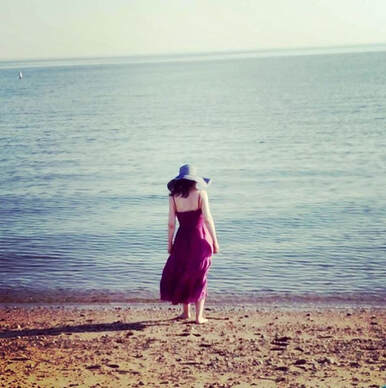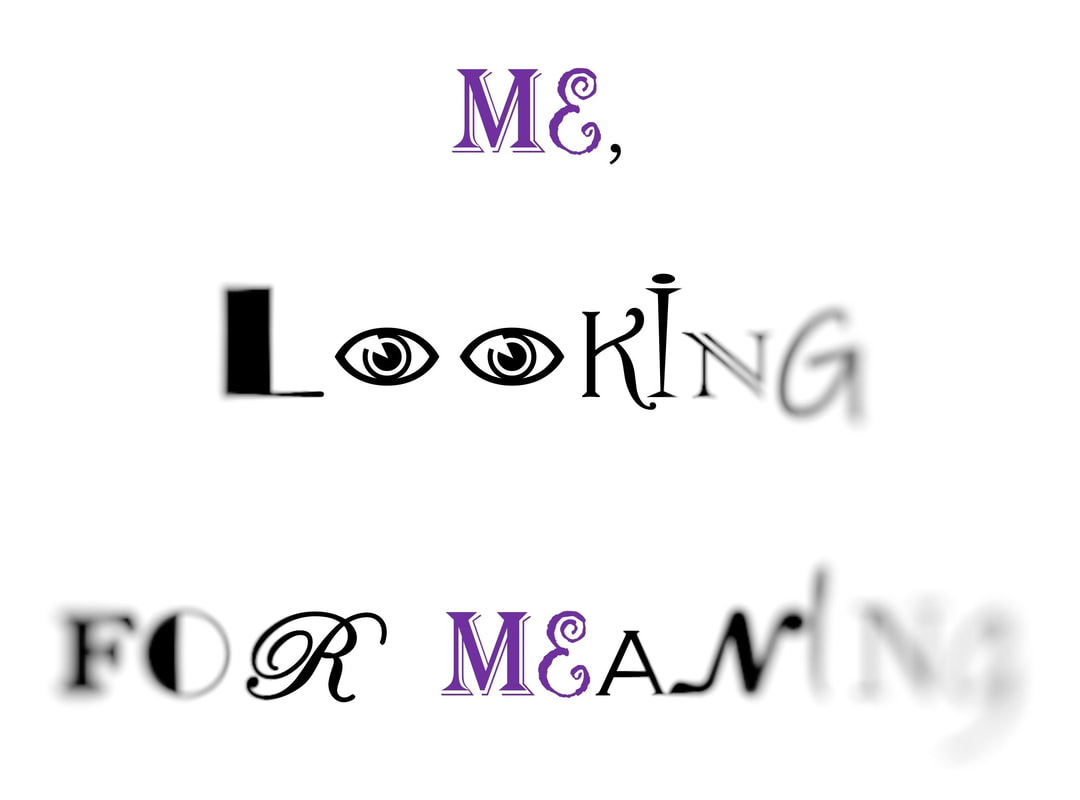My Quest for Meaning

Just to clarify: I am certainly not unique in trying to make sense of life, to understand what this is all about, to find the right direction, etc. Many people before me have wondered about the purpose of their existence and proposed different answers through science, religion, and art. Even those who have never explored any existential questions in a systematic way want to be guided by hope that "all of this" is not for nothing. Nobody wants to live a meaningless life. There must be something about the human nature that makes us look for, even long for a meaning.
My personal quest has been that of a scholar. It started with an inkling that different pieces of reality I was navigating had to fit together somehow. Otherwise, what was the point? I am sure that I share this feeling with most, if not all, other people. Yet, over time, a realization emerged that my response to this feeling will come through science. This understanding was shaped by the environment that I grew up in, including my parents' views on education and my love of reading. I don't think I explicitly wanted to be a scholar when I began my studies at the Faculty* of Philosophy in St. Petersburg State University, back in Russia. Like many teens, I did not quite know what I wanted my life to be. Luckily, this was the right move, as I soon started to enjoy (some) theories we were exposed to in our classes and (some) questions we discussed during seminars.
In my late teens and early twenties, I had my share of adolescent angst and turmoil. My studies were not always enjoyable or fun. In fact, sometimes I was not exactly sure that this education was good for anything. My faculty* had its quirks for sure, including the curious preoccupation with postmodernist philosophy that many of my professors shared. It took me time to realize that the program I had completed did give me a great theoretical foundation in a broad range of humanities and social sciences. The postmodernism, for which I started developing a sort of intellectual allergy during my studies, turned out to be very useful in addressing some of the questions I was trying to answer for myself.
This curious intertwining of my scholarship and my personal life has been a trait of my quest for meaning all along. During my eight years in St. Petersburg State University, I started finding tentative answers to my questions in books I was reading for studies. When I took a break from studying after getting my candidate of sciences degree**, I felt that something was missing. That is how I decided to continue my education by getting the second PhD degree, this time at Temple University in Philadelphia, PA (you can also read about this journey in my bio). As time passed, I saw with increasing clarity that I was the happiest when my academic interests and my intuitive attempts to make sense of life were aligned.
For me, looking for meaning equals looking for myself, trying to understand who I am and why I matter (hence, the logo of this project). Continuing on this path, I started to feel less confusion and more hope that there is a solution for challenges in my own life and in the world out there. The biggest problem I could think of was people hurting each other - and themselves in the process - so my goal gradually became to minimize these conflicts by creating more connection. That's how my focus on bridging divides through empathy has emerged. Finding myself suddenly felt possible when I decided to explore ways to enhance lost connections by helping people understand their own search for meaning.
Notes:
* In Russia, groups of university departments are called "faculties."
**This degree is considered an equivalent of the PhD degree outside of Russia.
About this project: Start page
My personal quest has been that of a scholar. It started with an inkling that different pieces of reality I was navigating had to fit together somehow. Otherwise, what was the point? I am sure that I share this feeling with most, if not all, other people. Yet, over time, a realization emerged that my response to this feeling will come through science. This understanding was shaped by the environment that I grew up in, including my parents' views on education and my love of reading. I don't think I explicitly wanted to be a scholar when I began my studies at the Faculty* of Philosophy in St. Petersburg State University, back in Russia. Like many teens, I did not quite know what I wanted my life to be. Luckily, this was the right move, as I soon started to enjoy (some) theories we were exposed to in our classes and (some) questions we discussed during seminars.
In my late teens and early twenties, I had my share of adolescent angst and turmoil. My studies were not always enjoyable or fun. In fact, sometimes I was not exactly sure that this education was good for anything. My faculty* had its quirks for sure, including the curious preoccupation with postmodernist philosophy that many of my professors shared. It took me time to realize that the program I had completed did give me a great theoretical foundation in a broad range of humanities and social sciences. The postmodernism, for which I started developing a sort of intellectual allergy during my studies, turned out to be very useful in addressing some of the questions I was trying to answer for myself.
This curious intertwining of my scholarship and my personal life has been a trait of my quest for meaning all along. During my eight years in St. Petersburg State University, I started finding tentative answers to my questions in books I was reading for studies. When I took a break from studying after getting my candidate of sciences degree**, I felt that something was missing. That is how I decided to continue my education by getting the second PhD degree, this time at Temple University in Philadelphia, PA (you can also read about this journey in my bio). As time passed, I saw with increasing clarity that I was the happiest when my academic interests and my intuitive attempts to make sense of life were aligned.
For me, looking for meaning equals looking for myself, trying to understand who I am and why I matter (hence, the logo of this project). Continuing on this path, I started to feel less confusion and more hope that there is a solution for challenges in my own life and in the world out there. The biggest problem I could think of was people hurting each other - and themselves in the process - so my goal gradually became to minimize these conflicts by creating more connection. That's how my focus on bridging divides through empathy has emerged. Finding myself suddenly felt possible when I decided to explore ways to enhance lost connections by helping people understand their own search for meaning.
Notes:
* In Russia, groups of university departments are called "faculties."
**This degree is considered an equivalent of the PhD degree outside of Russia.
About this project: Start page
